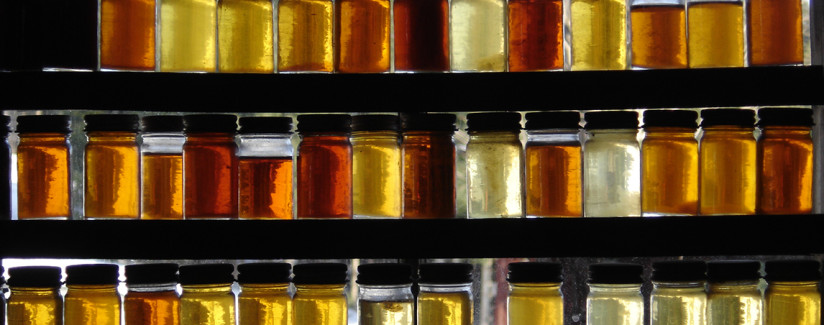
Sweet Misconceptions: The Truth about High Fructose Corn Syrup and “Normal Sugar”
06/20/2011
High Fructose Corn Syrup (HFCS) – a.k.a. “Corn Sugar” – has been a focus of media attention, starting with two television commercials pointing out that HFCS and sugar are nutritionally the same. Since, the topic has made appearances in the Huffington Post, the New York Times, and WebMD. Even Saturday Night Live has weighed in on the subject! And it’s no wonder – with an obesity epidemic, any product that is a suspected contributor is certainly due the extra scrutiny.
What we’ve learned, through talking with an esteemed expert on the subject, is that HFCS has gotten a bad rap and has been unfairly targeted. To set the record straight, we spoke with Dr. John White, M.D., Founder and President of WHITE Technical Research, and one of the leading experts in fructose and HFCS – the result of nearly 30 years of research on sweeteners. Read on for a biggest takeaways from our discussion.
HFCS is a natural product
Consumers tend to view sugar as a pristine sweetener that falls in crystalline form out of a sugar cane or sugar beets and right into the sugar bowl, as white shiny crystals. Alternately, many perceive that HFCS is highly processed. The truth lies somewhere in between. HFCS is not as processed as people think, nor is “normal sugar” – or sucrose – as pristine as people think. Both of these are derived from botanical sources. Sugar comes from sugar cane or sugar beets; HFCS comes from corn; fruit juice concentrate comes from various types of fruits; and agave nectar comes from the agave cactus. The FDA issued a letter a couple years ago, stating that HFCS is a natural product. They looked at the manufacturing process that’s used, and recognized that the process and steps really didn’t differ much from the processing that takes place with normal sugar. This allows HFCS to be classified under the FDA’s definition for natural.
HFCS is a sweetening ingredient with calories just like other sweeteners
Science tells us that there is little difference between HFCS and any other caloric sweetener. It adds calories in the same way that sugar, honey, fruit juice concentrate or agave nectar adds calories. In fact, they all contribute to the same number of calories per gram.
The other thing that can be looked at is how the body views these sweeteners. For example, let’s imagine we take two groups of women and give them a strict diet to follow, where we supplement the diet with either soft drinks that were sweetened with sucrose or with HFCS. In this scenario, we’ll assume that both groups of women are getting about 25 percent of their calories through the soft drink.
The result? In short, there is no evidence that shows there are any differences between the HFCS and the cane sugar diets in how they affect the body. What you will find through either diet is that the number of contributors to metabolism (which are important in judging obesity), are very similar. In fact, they are almost identical.
It’s all in the calories, so moderation is the key
The old saying, “moderation in all things” should be our measuring stick for good nutrition. It applies to many things in life, including sweeteners. Sweeteners are not inherently bad. In fact, sweeteners make some foods that aren’t the most palatable, taste great! For example:
- The little amount of sweetening in milk helps children see it as a favorable and flavorful option – a great thing because of the calcium and vitamin D it supplies, which may not be found in other beverages.
- For granola, cereal and other high-fiber products, a small amount of sweetener goes a long way in making them palatable. Since these are healthy to incorporate in a balanced diet, it’s a nice way to increase the likelihood they’ll be consumed – and the pleasure in eating them!
Without sweeteners, food would not have the same pleasurable eating qualities that it does with it. We just need to remember that they add calories – just as fat does, just as protein does, just as alcohol does. We all need to be mindful and be sure when consuming sweeteners, we’re doing so in moderation.
HFCS and sucrose are metabolically equivalent
There is consensus in the scientific community, among people who know sweeteners and know the nutrition, that HFCS and sucrose are metabolically equivalent and that all sweeteners should be consumed in moderation.
- The Academy of Nutrition and Dietetics published a hot topics paper
- The Center for Science in the Public Interest claims its true
- The American Medical Association examined this topic
Do you have questions or concerns about High Fructose Corn Syrup? Let us know by leaving your feedback below or submitting a question!
“syrup” by Mellydoll is licensed under CC BY-ND 2.0.

























